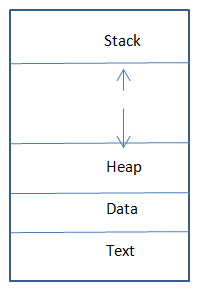Updated March 8, 2023

Introduction Multithreading Interview Questions and Answers C++
Before we go into the threading and related concepts regarding the interview, I would like to give a brief idea about how things work before the title of the article i.e. Multithreading starts to play its part. Let’s quickly see the details
There are 3 types of computer language
- Low level (machine level)
- The middle level (Assembly level) and
- High level (like C++, JAVA, COBOL etc)
These high-level languages (in our case we will consider C++) interact with the machines with the use of programs (which has codes built into them). A translator helps to translate the details to machine language (0’s and 1’s) just like a tour guide that translates one language to another.
Now once this exchange of information takes place between man (via codes) and a machine, concepts like threading and process come into the picture. These details we will discuss via question and answer for “C++ threading interview questions”.
Now, if you are looking for a job that is related to Multithreading C++ then you need to prepare for the 2023 Multithreading Interview Questions C++. It is true that every interview is different as per the different job profiles. Here, we have prepared the important Multithreading Interview Questions and answers C++ which will help you get success in your interview.
In this 2023 Multithreading Interview Questions C++ article, we shall present 10 most important and frequently asked Multithreading Interview Questions C++. These interview questions are divided into two parts are as follows:
Part 1 – Multithreading Interview Questions C++ (Basic)
This first part covers basic Multithreading Interview Questions C++.
Q1. What is multithreading?
Answer:
The thread is a sequence of execution; it can also be referred to as a feature of OS (operating system).
Let’s understand the above sentence in a simpler way.
For any action taken by a user on the system, there must be a process to complete that action (as asked by a user). Every process must have at least one thread associated with it. The OS built in every system is responsible to allocate the processing time for every thread. So Multithreading is a more specialized way of multitasking. This behavior allows the user to perform multiple tasks simultaneously.
Q2. Come up with every detail that you know regarding the Process?
Answer:
Let’s see what a process exactly is, Mr. A logs into the system and wants to see the dashboard of his business. In order to view his business dashboard on the system, he will navigate to the dashboard section. In doing so he generates a process that is handled by the respective system OS. The OS will allocate memory for the process and also the OS will make sure that the memory of one process is not accessible by other processes.
Hence, we can say that a process is nothing but a program in execution.
Layout (components) of the process –

A process has different stages which can also be referred to as process life cycle –
- Start
- Ready
- Running
- Waiting
- Terminated or Exit
Let us move to the next Multithreading Interview Questions C++.
Q3. Highlight some of the advantages of thread with its types?
Answer:
In general, there are 2 types of thread
- UI thread – These are used to create UI components. Eg. Message box pops-out to display any information to the user.
- Worker Thread – No message pump is included in it
Advantages –
- Minimizes the context switch time
- Boost communications
- Easy to create and connect the threads
- Threads usage makes the process more concurrent
Q4. Why do we need more than one thread?
Answer:
This is the common Multithreading Interview Questions C++ asked in an interview. As we know that there must be at least one thread associated with every process. Talking of more threads to a single process has multiple benefits.
- UI interface – The first and foremost reason is to have a great UI with great user experience. Multi-threading concept help in doing so.
- Multi-tasking – with having more threads one can do more things simultaneously.
- Usability – different components of the system might be using different components at a given point of time. Here multi-threading can be a time saver.
Q5. What are the ways to create a thread in C++?
Answer:
There are 4 ways of doing this which are as follows –
- Thread creation using the function pointer
- Thread creating using the function object
- Thread creating using lambda
- Thread creation using the member function
Q6. How to launch a thread using function objects and function pointer?
Answer:
Using function object –
class fn_object_class {
void operator () (params)
{
}
Std:: thread thread_object(fn_class_object(), params)Using function pointer –
void foo(param)
{
}
std::thread thread_obj (foo, params);Q7. What kind of issue do you find in this code?
Answer:
The code is given to candidate –
#include <iostream>
int main(int argc, char **argv)
{
const int & r1 = 100;
int v = 200;
int &r2 = v;
int & r3 = 200;
return 0;
}The rvalue must be a variable. The issue is there in the initialization of r3.
Part 2 – Multithreading Interview Questions C++ (Advanced)
Let us now have a look at the advanced Multithreading Interview Questions and Answers C++.
Q8. Brief me about the available models in Multithreading?
Answer:
Many to many relations
Many to One relation
One to one relation
Q9. Name the design pattern for the thread?
Answer:
Some popular test cases in the current IT industry
Thread Pool (Boos and Worker)
Peer (Work Crew)
Pipeline
Let us move to the next Multithreading Interview Questions C++.
Q10. Define busy waiting and how it can be avoided?
Answer:
When a thread is waiting for another thread with the use of an active looping structure, that doesn’t do anything is known as the busy-waiting state. This cane avoided using mutexes.
Q11. What do you understand by priority inversion terminology?
Answer:
A higher priority thread must wait behind a lower priority thread in a case where the lower priority threads hold a lock-in which a higher priority thread is waiting. This is a case of priority inversion.
Q12. Is there any difference between a user-level and Kernel-level threads?
Answer:
This is the most popular Multithreading Interview Questions C++ asked in an interview. Yes, there are some crucial differences between the two. They are listed below.
| User Level | Kernel Level |
| These are fast in action and creation | These are slow in action and creation |
| These are not bound to any OS | These are OS-specific |
| Implementation is at the user level | Implementation is at the Kernel level. |
Q13. Name the functions that are used to create the threads?
Answer:
An afxbeginthread function is used to create the threads (both kinds). Thread creation is done in two modes – one that starts executing it and another that gets created in the suspended mode which can be resumed later.
Q14. What are the 6 synchronizations primitive available in Multithreading?
Answer:
They are as follows –
- Mutex
- Join
- Condition Variable
- Barriers
- Spin Lock
- Semaphore
Recommended Articles
This has been a guide to the list of Multithreading Interview Questions and answers C++ so that the candidate can crackdown these Multithreading Interview Questions C++ easily. Here in this post, we have studied top Multithreading Interview Questions C++ which is often asked in interviews. You may also look at the following articles to learn more –


